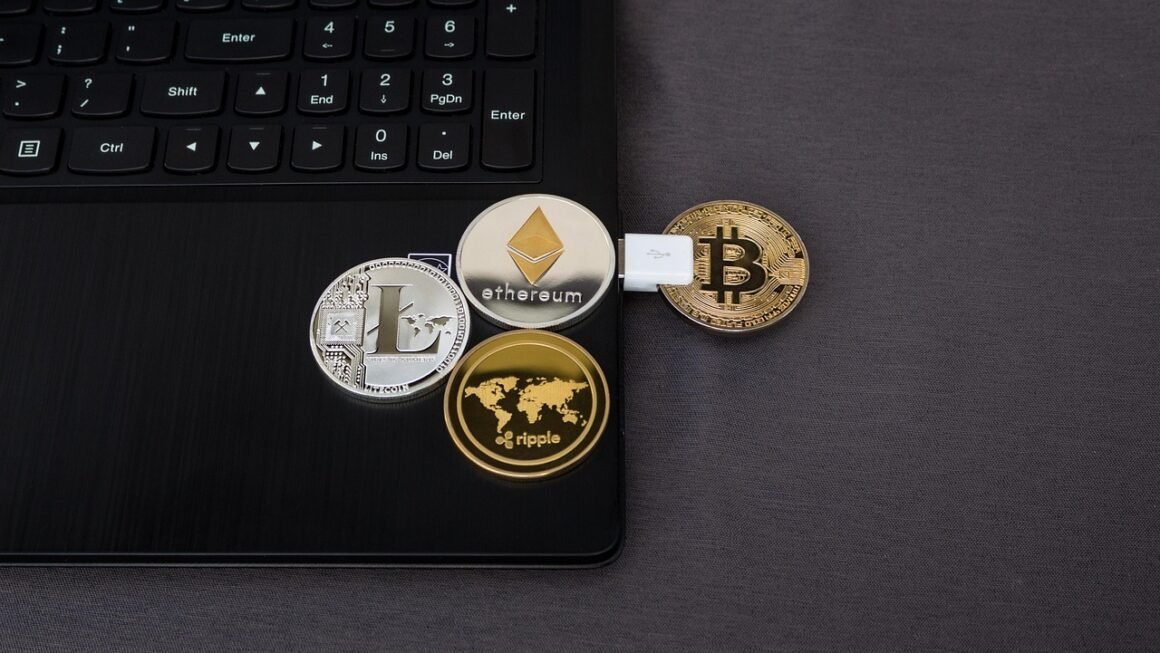Initial Coin Offerings (ICOs) have revolutionized the way startups and projects in the cryptocurrency and blockchain space raise capital. By offering digital tokens to early investors in exchange for established cryptocurrencies or fiat money, ICOs provide a direct and decentralized alternative to traditional funding methods like venture capital or angel investors. While they offer immense potential for both projects and investors, understanding the intricacies, risks, and regulatory landscape surrounding ICOs is crucial before participating.
What is an ICO?
Defining Initial Coin Offerings
An Initial Coin Offering (ICO) is a fundraising mechanism where a company or project creates and sells a new cryptocurrency or token to raise capital. Think of it as a cryptocurrency-based version of an IPO (Initial Public Offering) in the stock market. However, instead of shares in a company, investors receive digital tokens that may represent:
- Utility within the project’s ecosystem.
- A share of future profits.
- Governance rights.
- Simply a collectible or representation of value.
Unlike IPOs, ICOs often have lighter regulatory oversight, making them accessible to a wider range of projects and investors.
How Does an ICO Work?
The typical ICO process unfolds in several stages:
Examples of Successful ICOs
- Ethereum (ETH): Launched in 2014, Ethereum raised funds through an ICO and became the leading blockchain platform for decentralized applications (dApps).
- NEO (formerly Antshares): An early blockchain platform focused on creating a “smart economy,” NEO raised funds through an ICO and has since grown to be a prominent player in the industry.
- Filecoin (FIL): A decentralized storage network that raised over $200 million through its ICO, Filecoin aims to revolutionize data storage by offering a more secure and efficient alternative to traditional cloud storage.
Benefits of ICOs
Advantages for Startups and Projects
- Access to Capital: ICOs provide startups with access to a global pool of investors, allowing them to raise significant capital quickly and efficiently.
- Decentralized Funding: Unlike traditional funding methods that rely on centralized institutions, ICOs offer a decentralized approach to fundraising.
- Community Building: ICOs can help build a strong community around a project, as token holders often become active participants and advocates.
- Reduced Regulatory Burden: Compared to IPOs, ICOs often have less stringent regulatory requirements (though this is changing).
Advantages for Investors
- Early Access: ICOs allow investors to get in on the ground floor of promising projects.
- Potential for High Returns: If a project is successful, the value of its tokens can increase significantly, offering investors high returns.
- Diversification: ICOs can be used to diversify investment portfolios and gain exposure to new and emerging technologies.
- Direct Participation: Some tokens grant holders governance rights, allowing them to directly participate in the project’s development.
Risks and Challenges of ICOs
Risks for Investors
- Scams and Fraud: The ICO market has seen its share of scams, where projects disappear with investors’ funds.
- Project Failure: Even legitimate projects can fail due to poor execution, lack of market demand, or other unforeseen circumstances.
- Volatility: Cryptocurrency markets are highly volatile, and the value of ICO tokens can fluctuate dramatically.
- Lack of Liquidity: Some ICO tokens may have limited liquidity, making it difficult to buy or sell them quickly.
- Regulatory Uncertainty: The regulatory landscape surrounding ICOs is still evolving, which can create uncertainty and risk for investors.
Challenges for Projects
- Regulatory Compliance: Projects must navigate complex and evolving regulatory requirements in different jurisdictions.
- Security: ICOs are vulnerable to cyberattacks and theft, which can damage the project’s reputation and erode investor confidence.
- Marketing and Promotion: It can be challenging to stand out in the crowded ICO market and attract investors.
- Delivering on Promises: Projects must deliver on the promises outlined in their whitepapers to maintain credibility and build trust with investors.
- Long-Term Sustainability: Building a successful project requires long-term vision, dedication, and the ability to adapt to changing market conditions.
Mitigation Strategies
To mitigate these risks, both investors and projects should:
- Conduct thorough research: Investors should carefully research the project team, technology, and whitepaper before investing.
- Invest only what you can afford to lose: Cryptocurrency investments are inherently risky, so investors should only invest what they can afford to lose.
- Implement robust security measures: Projects should implement robust security measures to protect against cyberattacks and theft.
- Comply with regulations: Projects should ensure they comply with all applicable regulatory requirements.
- Build a strong community: Projects should focus on building a strong community of supporters and engaging with them regularly.
Regulatory Landscape of ICOs
Global Overview
The regulatory landscape for ICOs varies significantly across different jurisdictions. Some countries, like Switzerland and Singapore, have adopted a relatively permissive approach, while others, like China and South Korea, have banned ICOs altogether. The United States Securities and Exchange Commission (SEC) has taken a cautious approach, applying existing securities laws to ICOs where tokens are deemed to be securities.
- SEC (United States): Generally treats tokens as securities if they offer an expectation of profit based on the efforts of others. Many ICOs have been subject to SEC enforcement actions.
- EU (European Union): Developing a comprehensive framework for crypto-assets, including ICOs, through the Markets in Crypto-Assets (MiCA) regulation.
- Switzerland: Known for its crypto-friendly environment, but still requires compliance with anti-money laundering (AML) and know-your-customer (KYC) regulations.
- Singapore: Has a pragmatic approach, regulating ICOs based on their specific characteristics.
Key Regulatory Considerations
- Securities Laws: The primary regulatory concern is whether ICO tokens qualify as securities. If so, they are subject to registration and disclosure requirements.
- AML/KYC: Anti-money laundering (AML) and know-your-customer (KYC) regulations require projects to verify the identity of their investors to prevent money laundering and terrorist financing.
- Data Protection: ICOs must comply with data protection laws, such as the General Data Protection Regulation (GDPR) in the European Union, when collecting and processing personal data from investors.
Future Trends in Regulation
The regulatory landscape for ICOs is expected to become more standardized and comprehensive in the coming years. As governments and regulatory bodies gain a better understanding of the technology and its potential risks, they are likely to introduce more specific rules and guidelines.
Examples of ICO failures:
Several ICOs have ended disastrously for investors, illustrating the inherent risks.
- Pincoin and iFan: These Vietnamese ICOs turned out to be elaborate Ponzi schemes that defrauded investors out of an estimated $660 million. They promised high returns on investment in the entertainment industry, but ultimately collapsed, leaving investors with worthless tokens.
- AriseBank: Marketed as a decentralized banking alternative, AriseBank raised millions before the SEC shut it down for allegedly defrauding investors by making false and misleading statements about its operations and financial condition. The founders were subsequently charged with securities fraud.
- LoopX: This ICO vanished shortly after raising millions of dollars, with the founders deleting their online presence and taking the funds with them. Investors were left with nothing.
These examples underscore the critical importance of due diligence before participating in any ICO.
Conclusion
ICOs offer a compelling alternative to traditional fundraising methods, providing startups with access to capital and investors with opportunities for high returns. However, the ICO market is fraught with risks, including scams, project failures, and regulatory uncertainty. By conducting thorough research, implementing robust security measures, and complying with regulations, both projects and investors can navigate the ICO landscape more effectively and mitigate these risks. As the regulatory landscape evolves and the market matures, ICOs are likely to play an increasingly important role in the future of decentralized finance. Always remember to do your own research and understand the risks before investing in any ICO.



